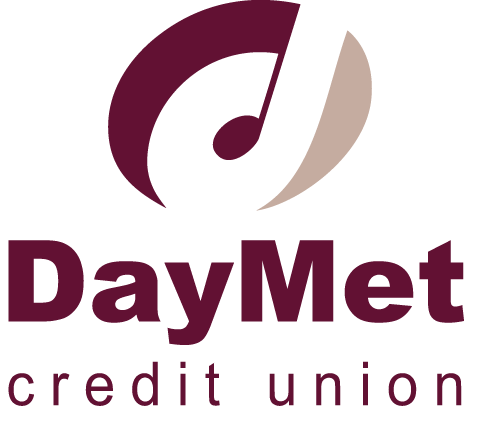World Elder Abuse Awareness
Each year, June 15 is recognized as World Elder Abuse Awareness Day (WEAAD). DayMet is recognizing this day by sharing resources to help prevent elder financial exploitation. Abuse of the elderly takes on many forms – physical, mental, and financial. To assist our members and their family members with guidance when it comes to the financial aspect, we will cover some of the most common financial scams that the elderly can fall prey to.
Social Security Scam
Someone calls saying that your Social Security Number has been used in a crime – they often say in Texas – and, that to avoid getting in trouble, you need to send money to them. No one would call you with this situation. And, if they turn around and ask for your information, they should already have it since they contacted you! Do not share personal information such as date of birth or SSN when someone calls you.
Medicare Scams/Counterfeit Prescriptions
Someone may call you to sign you up to use your Medicare benefits to purchase supplies for diabetes, back pain, etc. Always go through your doctor and known pharmacies. You may not get what you need through these suppliers that call you on the phone.
Phone scams
You name it, there is someone out there to try and defraud you on a phone call. They could say that they are calling you to lower your interest rate on your credit card or on your utilities or countless other reasons. When in doubt, hang up the phone and call the credit union (or anywhere you have a credit card) or the local utility company and ask them if they are making outbound calls like this. They prey on the fact that elderly people are sometimes lonely and will spend time grooming someone, gaining their trust and eventually trying to defraud them. One tool used by the scammers is called “spoofing” where they use a program to create a fake phone number, even spoofed law enforcement numbers and financial institutions! We will never call you out of the blue and ask for your personal information. If someone does that, you should hang up the phone and call the company or law enforcement agency at a number you find on a statement or government website.
Grandparent Scam
You receive a phone call, the voice on the other end says, “Grandma is that you?” At this point, the scammer is hoping you will reply with “Johnny is that you?” Then the scam is on – “yes, grandma – it’s me, Johnny”. You gave them the name and they spin a story that will tug on your heart strings – they are on spring break; they have not told their parents and they are hurt/in trouble/in jail. “Please don’t tell mom and dad”. Our advice? Hang up and call mom and dad. You will likely find that Johnny is at home or school where he should be.
Social Media (Facebook, Instagram, Words with Friends, etc.)
Scammers look at social media. They look for signs of money, status of widowed or single – they are looking for the vulnerable. A common scam is someone who claims to be working abroad for the military or on an oil rig. They are lonely and your profile seems to match theirs as far as likes and dislikes. They will tell you all the things we long to hear – that we are loved, we are needed, and we are special. And, you will be special until they convince you to send them money. Ask your credit union employee before sending money abroad or buying gift cards to send to the person.
Internet/Email Scams
The fraudsters bet that they can trick someone who is older, on the internet, and may not be too tech savvy. One of the biggest scams on the internet is a pop-up window where they try to convince you that your computer has a virus. No one is sitting at Apple, Microsoft, Dell or Google running tests looking for viruses on an individual’s computer. If you are on the internet, please be sure that you have a current and active virus software installed. If you do fall for this scam, they may try to access your homebanking and “pretend” to refund you money. In reality, they have transferred money from another account you have (savings to checking, line of credit to checking, etc.). Call us immediately to freeze your account! Turn off your computer and have a virus scan done on your machine by a professional.
Also, be wary of emails that contain an attachment or have a link to click. These are used to attempt to get your personal information by planting a virus on your computer.
Investment Scams
You can make money to leave for your loved ones. If an investment opportunity promises you can “get rich quick”, you will not be the one getting rich. It will be the person who contacts you. Do not make investments with someone you do not know and have not met.
You have won the Australian Lottery
Wait…have you played the Australian lottery? If someone approaches you and says you have won, but you must pay taxes, tariffs, fees to someone before you can collect, it is likely fraud. You cannot win an international lottery here in the USA!
Charity scams
In times of devastation (hurricanes, tornadoes, and fires), so-called charities come out of the woodwork to try to solicit money from tenderhearted people. Go with local charities that you know for ways to support your community. You are more likely going to see those moneys remain in your community. Charities must be registered to do solicitations in the state of Ohio.
With any of these scams, some of the biggest commonalities is they may request you to buy gift cards. Quite often, the scammers will have a heavy accent and may be difficult to understand. Once you buy the gift cards, they will ask you to scrape the numbers off the back of the gift card and read them to the person on the phone. When you provide those numbers, the funds are stripped off the card and you are left with a worthless piece of plastic.
REMEMBER, IF SOMEONE YOU DON’T KNOW EVER ASKS YOU TO BUY GIFT CARDS AT A STORE, IT IS A SCAM 100% OF THE TIME. NO IFS OR BUTS ABOUT IT!
So, if you aren’t sure what to do with any of these situations or other situations, DayMet Credit Union is here to help you. You can stop by an office or call us at 937-236-2562 and someone will help you with any of these situations or others that may arise.




